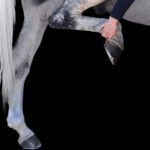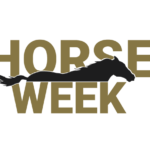October 24, 2001 — The alternative to the two sides working together lies in a sealed decision by a U.S. Olympic Committee hearing panel, delivered after three days of testimony this month in Austin, Texas, on the USET’s challenge of USAE’s NGB status. Word is that USET and USAE officials were told neither organization would be happy with the conclusion of the panel. Originally, the hearing committee’s recommendation was to be handed up to the full USOC board in Salt Lake City this weekend for a final decision, but the time frame for opening the envelope has been stretched until Nov. 17 to give the parties longer to come to an agreement.
The USET trustees gathered this morning in executive session, which meant the meeting was closed to outsiders, so they could offer their unrestricted views on the situation. USET President and CEO Armand Leone, Jr. said in an interview after the meeting that regarding a settlement, “there’s too much at stake not to try, provided everything could be on the table” to be discussed by negotiating teams from both organizations. Negotiators will be working with the same mediator who tried to help them resolve the issue before the Austin hearing.
Merger, however, is not part of the USET’s vocabulary for this exercise, since the trustees do not want “the AHSA to control their affairs,” said Leone.
“I have always felt a settlement is possible,” said USAE President Alan Balch. “I continue to feel a settlement is possible and we will, on the USA Equestrian side, be exploring every possible avenue to see if we can get a settlement because we strongly believe that’s in the best interests of the sport. I believe the leadership of USA Equestrian is united in that belief.”
He added, however, “it’s not easy to resolve these things in a few days or a few weeks, when they’ve been building or growing for years, or even decades.”
There has been a feeling among a number of USET trustees that it would be difficult to come to an agreement as long as the controversial Balch heads USAE.
“Certainly I know that people feel that way. . . but I don’t think anybody should resign from any organization in the entire sport,” said Balch.
“I think every volunteer, whatever his or her point of view, has a contribution to make,” Balch continued, “and I think that’s a slippery slope to get on and I think we should be looking toward the future.”
Added Balch, “The future in my opinion should be inclusive and that means inclusive of everybody and inclusive of all points of view, frankly, including my own.”
Some trustees are particularly rankled at Balch because he filed a successful lawsuit against the team that enabled him to pore through USET financial records, which were a key part of the USAE case in Austin.
Four-in-hand driver Jimmy Fairclough, a USET trustee who was a target of the USAE case in Austin, said, “I believe Alan is the gasoline on the fire,” suggesting Balch at least take a leave of absence to enable things to get worked out between the organizations.
USAE lawyers during the NGB hearings alleged there was undue influence to select Fairclough for last year’s world championship squad over his former student, Chester Weber, because Fairclough’s team of horses is owned by Jane Clark, a big contributor to the USET and one of its former officers.
USET lawyers brought out that the selection committee, which also included members of the AHSA driving committee, was unanimous in choosing the more experienced Fairclough. When USET Chairman Finn Caspersen asked the panel to vote again after Weber appealed to him, it came back with the same decision.
The USET has said it really did not want the NGB title, but just was seeking to avoid interference in doing its job of 50 years, which has involved funding, training and fielding teams for international competition.
However, the federal Amateur Sports Act mandates that an NGB cannot delegate its duties. USET — saying it feared a takeover of its duties after receiving what it viewed as a threatening letter from USAE — challenged USAE’s status, contending the team had long handled much of the NGB duties.
In addition to selecting either the USET or USAE as the NGB, the hearing panel also had the option of declaring the USAE out of compliance with the rules for an NGB and putting it on probation, or declaring an NGB vacancy in equestrian and taking on that role itself temporarily.
Nancy Jaffer is an award-winning equestrian journalist. She has covered six Olympics, and in addition to the disciplines held at the Games, the New Jersey resident writes about everything from endurance and hunters to equitation and driving. Jaffer, whose work has been published all over the world, is the secretary of the International Alliance of Equestrian Journalists. Her column, “On The Rail With Nancy Jaffer,” appears regularly on Equisearch.





